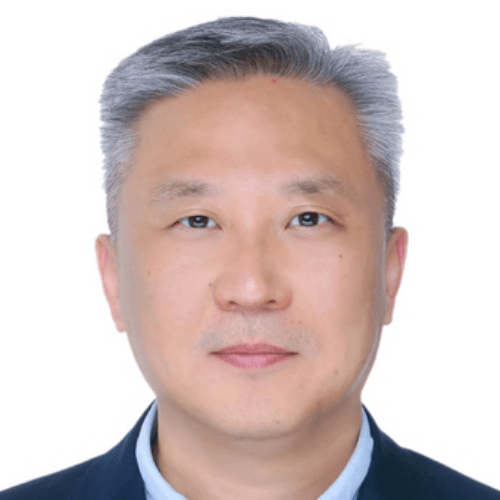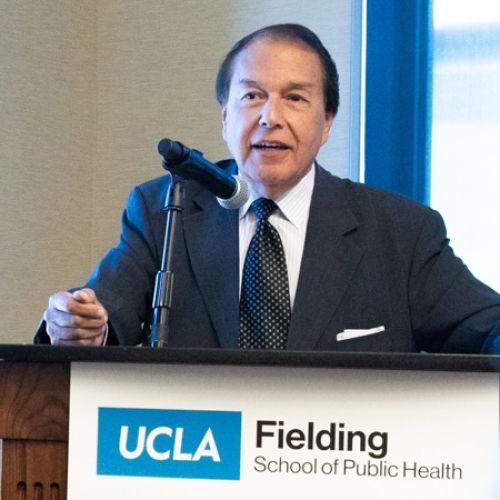UCLA Chancellor’s Fellowship brings UC Merced graduate to UCLA Fielding School of Public Health to study improving farmworkers’ health
Dr. Fabiola Perez-Lua to be mentored by UCLA Fielding’s Dr. Ninez Ponce, chair of the Department of Health Policy and Management.

The daughter of San Joaquin Valley farmworkers has earned the opportunity to study alongside a nationally prominent UCLA Fielding School of Public Health researcher to improve the health of California’s agricultural laborers.
Dr. Fabiola Perez-Lua, who received her doctoral degree in public health at UC Merced (PhD, ’25), has been awarded a UCLA Chancellor’s Postdoctoral Fellowship, and will be mentored by UCLA Fielding’s Dr. Ninez Ponce, professor and chair in the Department of Health Policy and Management.
The competitive program – in partnership with the University of California Office of the President’s Postdoctoral Fellowship Program, is managed through the office of UCLA Chancellor Dr. Julio Frenk, a physician who holds a faculty appointment at UCLA Fielding - provides research funds and mentoring to outstanding scholars whose research, teaching, and service will contribute to the mission of the University of California, in California and beyond. Perez-Lua was one of 78 recipients selected from nearly 1,300 applicants; more than 400 current University of California and California State University faculty have gone through the program.
Growing up with parents who gathered grapes, almonds, and pistachios from Tulare County fields sharpened the insight Perez-Lua applies to improving the lives of California’s workers, especially those in the state’s $60 billion-a-year agricultural industry, which employs an estimated 470,000 farmworkers at the height of harvest season.
“Agriculture is this huge political and economic powerhouse, especially in the Central Valley,” Perez-Lua said. “So how does the industry exercise this power and how does that shape farmworkers’ conditions? I'll use the time through this fellowship to dig deep into this question.”
Her longtime adviser at UC Merced said Perez-Lua has an innate rapport with the dozens of people she has interviewed for research studies.
“She manages to balance the urgency of getting the data with thoughtfulness and care in a way that is extraordinary,” said Dr. Maria-Elena De Trinidad Young, a UC Merced public health professor and UCLA Fielding alum who is also a researcher at the UCLA Center for Health Policy Research (CHPR), led by Ponce.
“Dr. Ponce a health policy leader whom people turn to at a national level to support things like affordable insurance for marginalized populations,” Young said. “She embodies good scholarship and good advocacy. I’m excited for Fabiola.”
Perez-Lua’s parents came to California more than 30 years ago, leaving impoverished lives in Mexico. They took up fieldwork in the San Joaquin Valley and started a family. During winter breaks from school, their children would help in the grape vineyards, collecting pruned branches for pick-up.
“My sisters and I never worked on crops other than grapes because that’s what was there at the time,” Perez-Lua said. “A lot of those vineyards have been knocked down to grow almonds. The landscape has changed over the years.”
She attended public school in Tulare, graduated from high school, and earned her undergraduate and graduate degrees at UC Santa Barbara and UC Merced. Perez-Lua joined UC Merced’s Public Health graduate program in 2020, amid the early months of the COVID-19 pandemic, and co-authored research on how COVID affected mental health and food access in rural California.
Perez-Lua will continue to work with UC Merced scholars during the one-year fellowship at UCLA, but also is partnering with Dr. Carly Hyland, a UC Berkeley environmental health science professor. Their first collaboration will use interviews with farmworkers and their employers to help develop workplace solutions to heat-related stress and illness.
“Fabiola brings a unique combination of impressive public health training and an unrelenting passion for addressing the root causes of environmental, occupational and health inequities among farmworkers and their families,” Hyland said.
Those connections, between campuses and across generations of researchers studying solutions to real-world issues, is one of the great strengths of the University of California, experts said.
“This is such wonderful news. Dr. De Trinidad Young was a star student of Dr. Steve Wallace, one of the builders of CHPR, and herself a great researcher,” said Ponce, who also serves as principal investigator for the California Health Interview Survey, the largest state-level health survey in the U.S. “Seeing Fabiola achieve such success is a continuation of a generational legacy of difference-making scholarship, and I’m so heartened to be part of it.”

